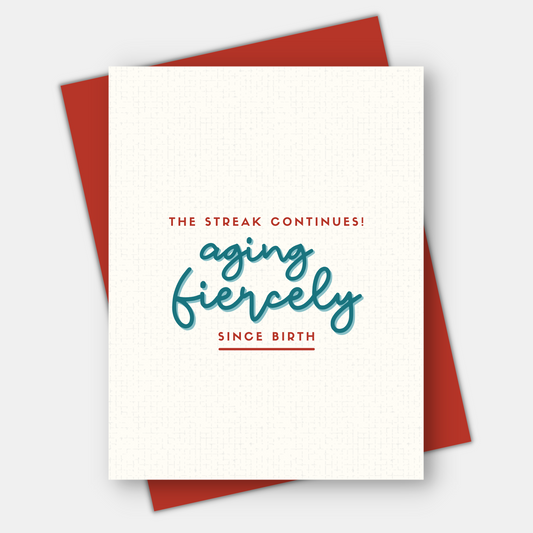Once you’re conscious of ageism, you see it everywhere, even in your closest relationships.
Ageism is any judgment based on age, whether directed at people older than us, younger than us, or ourselves (internalized ageism). Ageism includes jokes about old age and suggestions that older adults suffer from decline, depression, and dementia.
It’s easy to recognize ageism in an offensive ad, scoff at the concept of anti-aging cream, or jump in on comments when ageism appears on social media. It can be challenging to acknowledge ageism in our close relationships.
Since these relationships are the most meaningful in your life, the impact of ageist views and actions is magnified.
When ageism seeps into your relationships, the behavior may be defended with the declaration, ‘I was just joking!’
I have a friend whose kids thought giving him an ‘old fart’ card for his birthday each year was funny. As he got older, this inside joke turned the corner into being hurtful. He struggled with how to tell his kids this was no longer OK with the label of ‘old fart.’
Research exposing the impact of attitudes about aging is no joke. According to research by Dr. Becca Levy in Breaking the Age Code, when people have negative views about aging, their lifespan can be impacted by an astounding 7.5 years.
Do you recognize these signs of ageism in your relationships with friends, family, or close acquaintances?
1 - Staying silent when people use age as an excuse
- Do you ever witness a loved one blaming their age when explaining behavior? It can show up when they have trouble hearing, forget something, or are physically exhausted.
- If you witness someone using age as an excuse, ask why they feel that way about getting older and be prepared to listen.
- It may be an excellent opportunity to remind them of the research that having a positive mindset about aging impacts longevity.
2 - Asking about retirement
- Asking someone, ‘When are you going to retire?’ is a common question when we meet up with old friends.
- Many people have no plans to retire. They may find their career rewarding, can’t afford to stop working, or be in a situation where quitting impacts many people. You don't know – so don't assume.
- If you feel the urge to ask about retirement, stop yourself and remember that retirement is a personal decision; they’ll discuss it with you if they want to.
3 - Assuming someone older needs help with tech
- Assuming that young people are computer geniuses and older people are technologically inept reinforces ageist stereotypes.
- If you don’t live with the person, you don’t know how they use technology daily.
- When you witness someone struggling, wait until the person asks for help. Assume they are competent only if there are indicators they are not.
- And when you do help them, take a minute to explain how you found the answer. It will help them find the answer themselves in the future.
4 - Unsolicited help to lift or move heavy objects
- Have you ever found yourself rushing to help someone load groceries, lift a suitcase, or move a box?
- Assuming someone older needs help lifting or moving objects is ageist. Many older adults are in excellent physical condition, and many younger people appreciate assistance.
- When you see someone attempting to lift or move something heavy, ask if they need help. Be aware that many people, especially women, are on the receiving end of unsolicited help.
5 - Giving or receiving ageist birthday cards
- We’ve all seen them; unfortunately, some receive them. Birthday cards with cartoon-like visuals of sagging body parts, paired with clever sentiments about how awful it is to be old.
- Ageist birthday cards differ from other ageist messages because they are given directly to the person, making the ageist sentiment incredibly potent.
- When celebrating a birthday, if an ageist card is present, use it as an opening to ask the recipient how they feel about getting older. Consider it the perfect time to discuss ageism and its harmful effects.
These types of interactions contribute to the negative stereotypes of older adults that have deep roots in our youth-obsessed culture.
It takes us all to recognize ageism in its many forms, including those that seep into our closest relationships.
Wherever you encounter ageist behavior, don’t ignore it.
- Learn how to recognize ageism, including the ageism that seeps into our heads and our relationships.
- When you encounter ageist behavior speak up! Find a way to calmly explain your observation without making the situation tense.
-
Make the choice to handle the situation differently next time and don’t be too hard on yourself or loved ones.
Speaking of choices, shop our collection of birthday cards that celebrate, instead of denigrate age. Visit Age-Friendly Vibes and stock up today!




